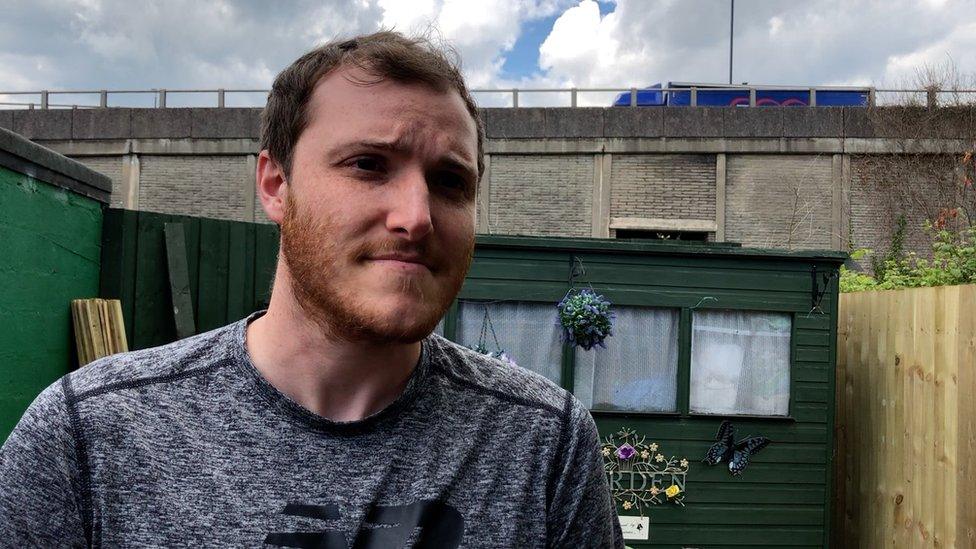M4 relief road: 'Better public transport' for Newport needed
- Published
"Motorway charge may be necessary"
Better public transport is needed to provide an alternative to the scrapped M4 relief road, a panel of experts says.
Some form of charging could also be a way to ease traffic, the South East Wales Transport Commission said.
But alternatives such as reopening rail lines would need to be in place first, according to the report.
The , external at rush hour but Wales' first minister scrapped a relief road plan last year.
The report highlighted that people may be reluctant to use crowded public transport after the coronavirus pandemic and many may continue to work from home - so any long term predictions about traffic levels are not possible.
It said a "network of alternatives" was needed, with a "local rail backbone" - more stations between Cardiff and Severn Tunnel Junction.
Many people were using the motorway because they had no other realistic option, with journeys to and from Newport particularly poorly served, it found.
But the different ways of working that have emerged during the coronavirus pandemic give a period of "breathing space".
And the pandemic is now leading the committee to look in more detail at flexible working arrangements.
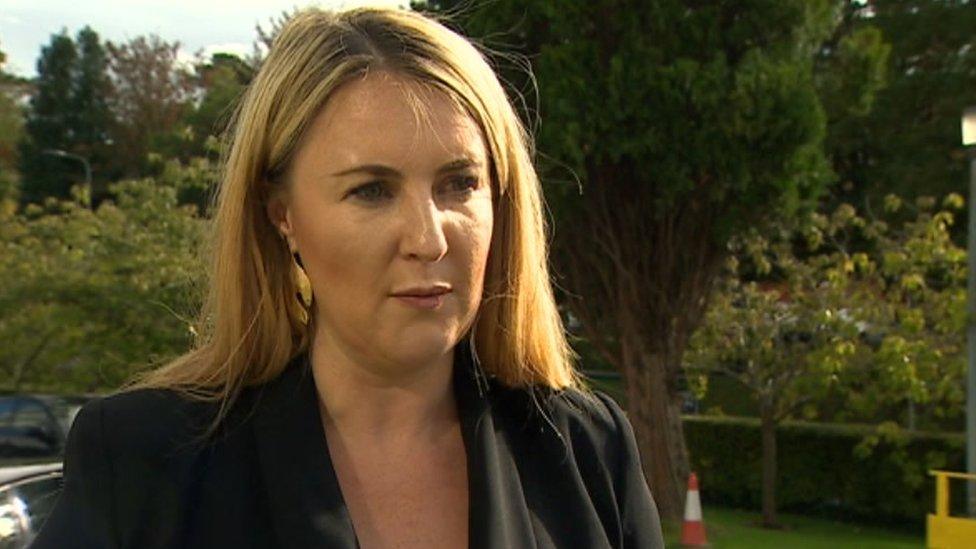
Sophie Howe was appointed the first Future Generations Commissioner for Wales in 2016
Future Generations Commissioner for Wales Sophie Howe welcomed the idea of improving public transport, and called for more investment in the green economy.
"Wales didn't need a £1.6bn motorway a year ago and it doesn't need one now," she said.
"We need green jobs, industries and infrastructure to recover from the pandemic, and protect ourselves against the uncertainties of another crisis in the form of the climate and nature emergency."
But businesses which rely on the M4 say any charge to use the motorway would make them less competitive globally.
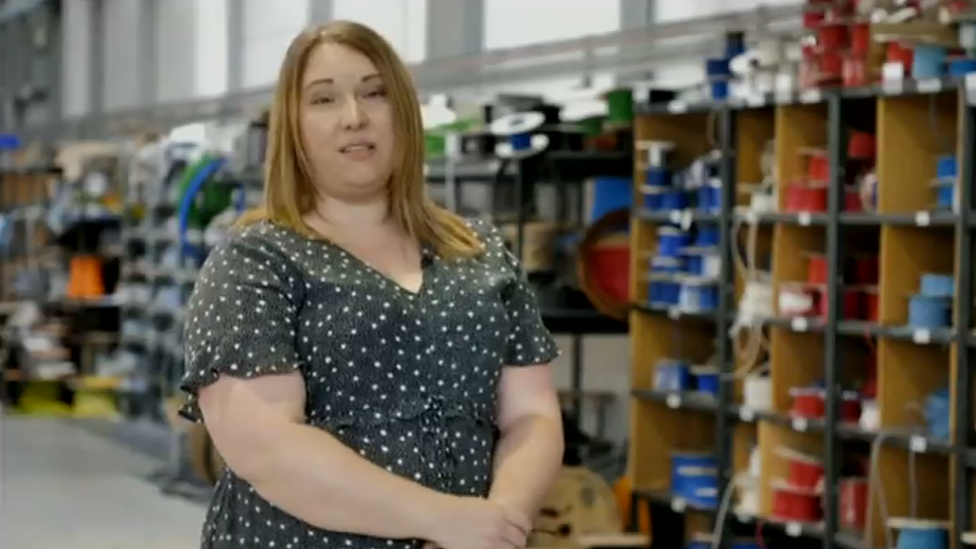
Kath Lewis says a charge to use the M4 would add "huge additional costs" to businesses in the region
"All our components - down to the wires, the minutest of components - are delivered to us via freight," said Kath Lewis, director of Industrial Automation and Control, based in Newport.
"[There would be] huge additional cost to the business which would make us slightly less competitive in the global market.
"I think it's tough enough at the moment without adding additional barriers."
Mark Drakeford axed the relief road scheme in June last year because of its cost and impact on the environment, after ministers declared a climate emergency.
He added he would not have gone ahead even if it was affordable because of the impact on the Gwent Levels waterways, which are home to rare birds and other species.
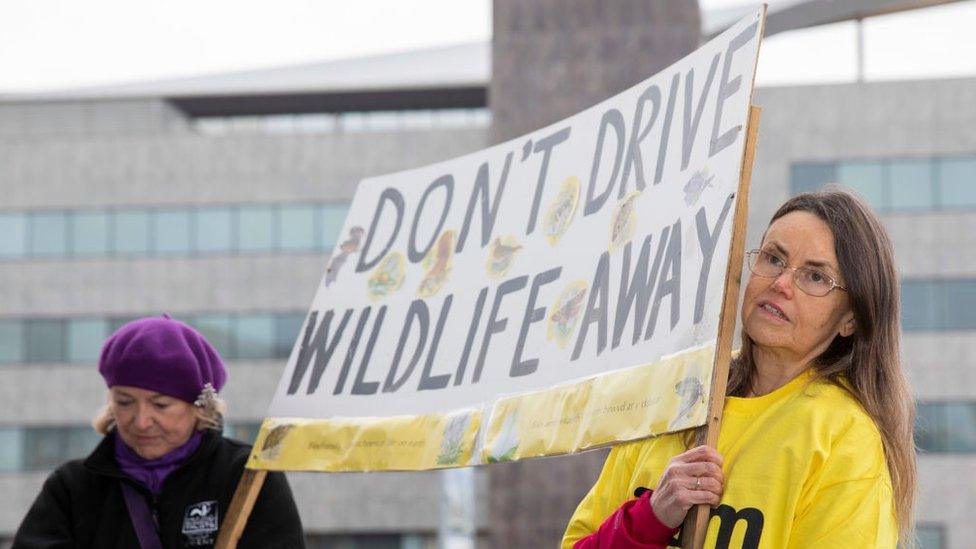
Environmentalists opposed the now-axed plans for the new motorway
Key findings
Congestion on the M4 is largely a peak hours, commuting problem
The M4 around Newport is the fourth most congested stretch of urban motorway in the UK
Parts of the motorway have been operating at or close to their practical capacity
Most commuting cars carry only one traveller
Between Newport and Bristol, there are about 23,300 daily journeys

The panel said the root cause of the congestion was because many places like housing estates, workplaces and retail parks had been located close to the motorway, without meaningful transport alternatives.
"In the absence of more developed transport alternatives, the motorway has been a natural point around which to plan developments," the report said.
It added with Cardiff and Newport planning for physical and economic growth, congestion was likely to increase.
"Without transport alternatives, the design of many of these developments risks reinforcing car dependency rather than encouraging modal shift to public transport or active travel," it said.
The panel found while there is a good rail service between Cardiff, Newport and Bristol centres, the majority of trips do not just involve city centres.
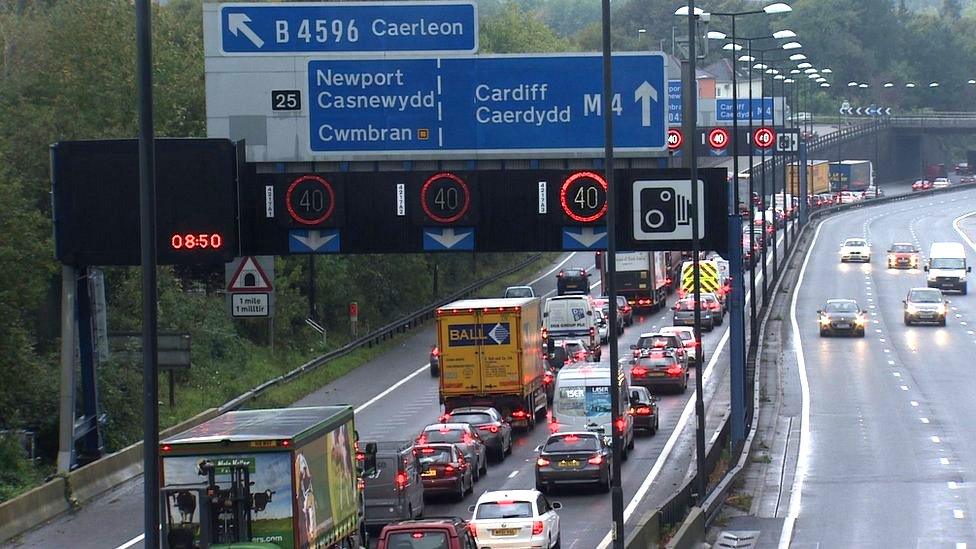
The M4 relief road was proposed as a solution to tackling congestion around Newport
"As such, there is insufficient rail provision to offer a genuine alternative to the motorway."
It added the bus network does not serve travel patterns well either, and are not coordinated with train services in the majority of cases.
The report suggested "integrated ticketing" and a coordinated timetable.
Could commuters cycle and walk?
Similar to buses, active travel - cycling or walking - is insufficiently integrated with the wider transport network, the report says.
It highlights there is no dedicated active travel route between Newport station and the major employment sites in the city, and no commuter cycle route between Cardiff and Newport.
Local authorities appear to have focussed on improving routes from suburban areas into centres, rather than traffic-free routes between council areas, it says.
More people working from home after Covid-19?
Before the pandemic, the panel said it expected to say traffic would grow in the medium term - but there is "significant uncertainty" regarding both the medium and long term now.
It said stakeholders had already deemed a "fundamental change in working behaviours" necessary to end the traditional 09:00 to 17:00 office working.
But there has been a slow, gradual increase since a dramatic fall in traffic at the end of March, as restrictions have begun to be relaxed - and the experts expect this to continue.
It said traffic will rise "even if everyone who can work from home continues to do so".
This video reveals the possible route of the M4 relief road
What about social distancing rules on public transport?
Public transport capacity significantly falls with social distancing - by as much as between 70% and 90%.
And car occupancy rates may also fall if public health guidance advises against car sharing.
"We therefore expect an increase in the number of single occupancy cars on the M4," the report said.
What happens in the long term is uncertain, the report said, dependant on which behaviours revert to their pre-epidemic states.
Key questions include:
What will be the long-term impact of home working once social distancing measures are removed?
Will people be willing to use crowded services in the future?
Will more people be willing to walk or cycle to work as a result of their experiences?
What will the public transport industry look like, financially, once the crisis interventions have been unwound?
But it estimated the changes will not fundamentally change the long-term need for more transport options.
The "breathing space" from the pandemic can be used to put good alternatives to the motorway in place.
Charging to use the M4?
The report concludes that "some sort of charging mechanism is necessary" to encourage people to use public transport, cycle or walk.
It also points out a charge could provide revenue funding for transport services.
However, it said it would be difficult to introduce such measures before new transport alternatives are in place.
The panel, which was set up to look at alternative solutions to the congestion after the relief road was scrapped, will issue a final report with specific recommendations for the Welsh Government by the end of the year.
- Published8 July 2020
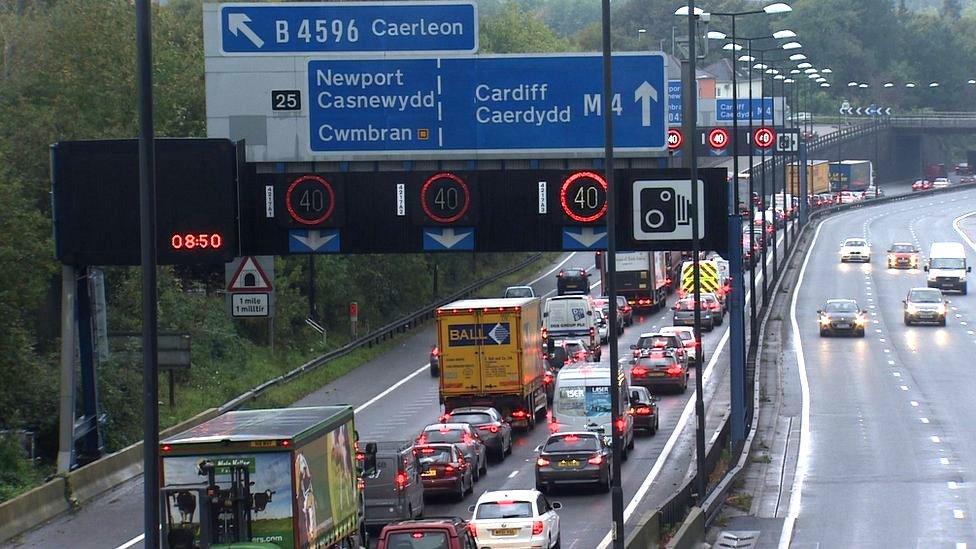
- Published4 June 2019
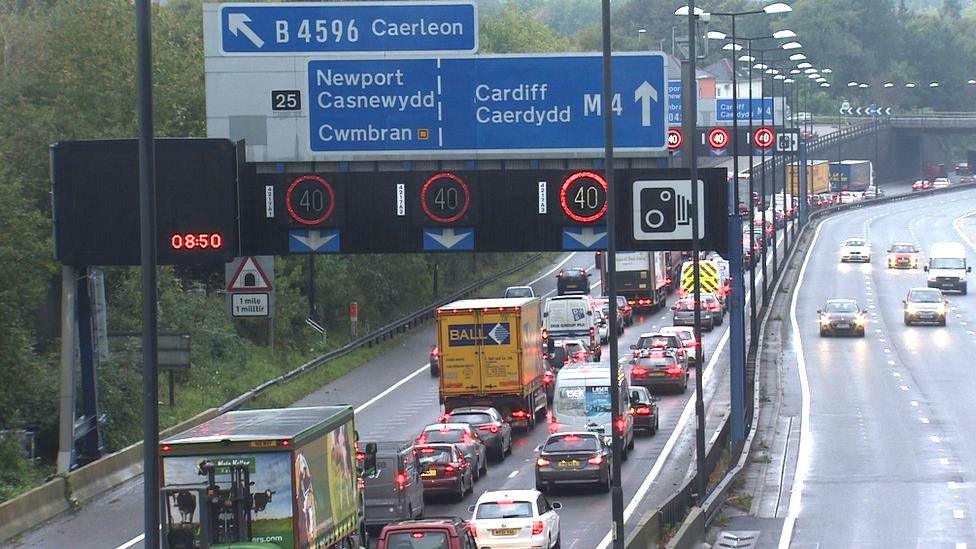
- Published4 June 2019
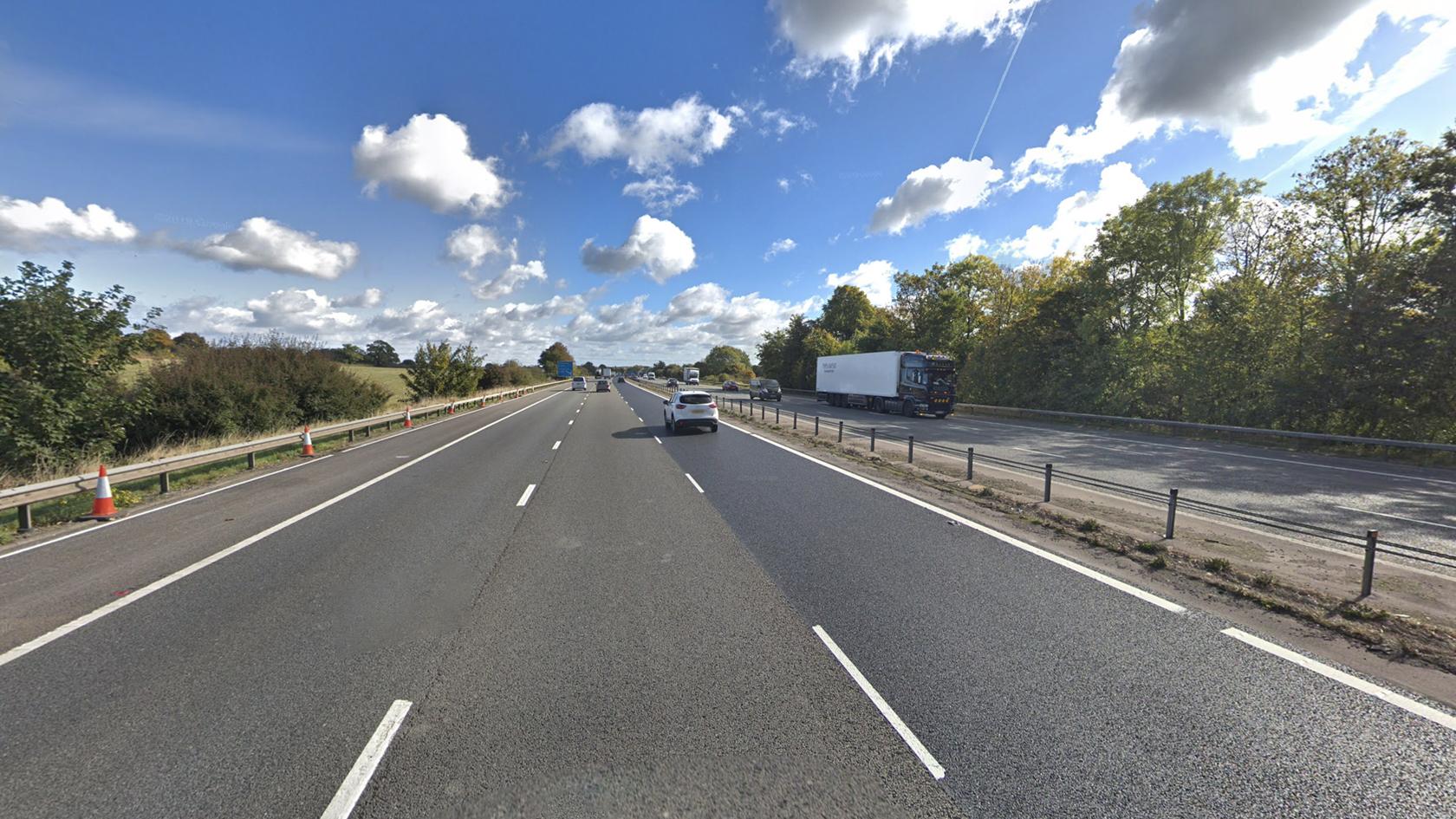
- Published3 June 2019
